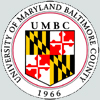| |||||||||||||||||||
Tips:  Range on the Protein: Protein ID Protein Position Domain Position: 
|
|---|
Weblogos are Copyright (c) 2002 Regents of the University of California
| DMDM_info@umbc.edu | 1000 Hilltop Circle, Baltimore, MD 21250 | Department of Biological Sciences | Phone: 410-455-2258 |




 C-terminal, alpha helical domain of Class Theta Glutathione S-transferases. Glutathione S-transferase (GST) C-terminal domain family, Class Theta subfamily; composed of eukaryotic class Theta GSTs and bacterial dichloromethane (DCM) dehalogenase. GSTs are cytosolic dimeric proteins involved in cellular detoxification by catalyzing the conjugation of glutathione (GSH) with a wide range of endogenous and xenobiotic alkylating agents, including carcinogens, therapeutic drugs, environmental toxins and products of oxidative stress. The GST fold contains an N-terminal thioredoxin-fold domain and a C-terminal alpha helical domain, with an active site located in a cleft between the two domains. GSH binds to the N-terminal domain while the hydrophobic substrate occupies a pocket in the C-terminal domain. Mammalian class Theta GSTs show poor GSH conjugating activity towards the standard substrates, CDNB and ethacrynic acid, differentiating them from other mammalian GSTs. GSTT1-1 shows similar cataytic activity as bacterial DCM dehalogenase, catalyzing the GSH-dependent hydrolytic dehalogenation of dihalomethanes. This is an essential process in methylotrophic bacteria to enable them to use chloromethane and DCM as sole carbon and energy sources. The presence of polymorphisms in human GSTT1-1 and its relationship to the onset of diseases including cancer is the subject of many studies. Human GSTT2-2 exhibits a highly specific sulfatase activity, catalyzing the cleavage of sulfate ions from aralkyl sufate esters, but not from the aryl or alkyl sulfate esters.
C-terminal, alpha helical domain of Class Theta Glutathione S-transferases. Glutathione S-transferase (GST) C-terminal domain family, Class Theta subfamily; composed of eukaryotic class Theta GSTs and bacterial dichloromethane (DCM) dehalogenase. GSTs are cytosolic dimeric proteins involved in cellular detoxification by catalyzing the conjugation of glutathione (GSH) with a wide range of endogenous and xenobiotic alkylating agents, including carcinogens, therapeutic drugs, environmental toxins and products of oxidative stress. The GST fold contains an N-terminal thioredoxin-fold domain and a C-terminal alpha helical domain, with an active site located in a cleft between the two domains. GSH binds to the N-terminal domain while the hydrophobic substrate occupies a pocket in the C-terminal domain. Mammalian class Theta GSTs show poor GSH conjugating activity towards the standard substrates, CDNB and ethacrynic acid, differentiating them from other mammalian GSTs. GSTT1-1 shows similar cataytic activity as bacterial DCM dehalogenase, catalyzing the GSH-dependent hydrolytic dehalogenation of dihalomethanes. This is an essential process in methylotrophic bacteria to enable them to use chloromethane and DCM as sole carbon and energy sources. The presence of polymorphisms in human GSTT1-1 and its relationship to the onset of diseases including cancer is the subject of many studies. Human GSTT2-2 exhibits a highly specific sulfatase activity, catalyzing the cleavage of sulfate ions from aralkyl sufate esters, but not from the aryl or alkyl sulfate esters. No pairwise interactions are available for this conserved domain.
No pairwise interactions are available for this conserved domain.








